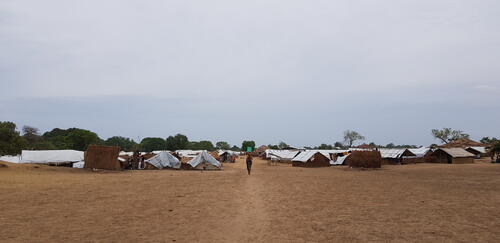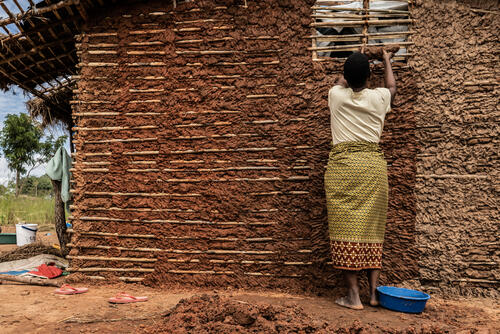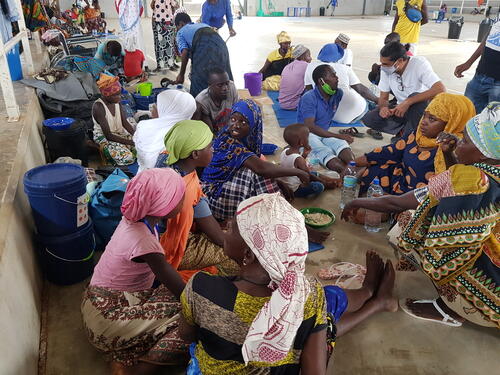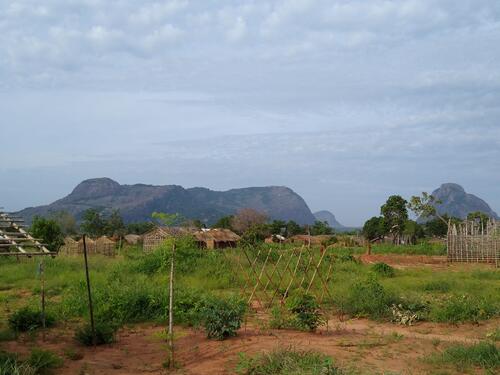Nearly 670,000 people have been forced from their homes since conflict broke out in northeastern Mozambique’s Cabo Delgado province in 2017, between non-state armed groups and the army. MSF medical coordinator Patricia Postigo describes the situation in and around the city of Montepuez, where some 50,000 people have sought refuge from the violence.
How has the conflict affected people in Cabo Delgado?
The conflict in Cabo Delgado is mostly in the northern, coastal part of the province. When armed men enter villages in this area, people either move south to the provincial capital, Pemba, or inland, in which case their first destination is usually the mountainous town of Mueda, which is under the control of the army.
Before reaching Mueda, most walk for four, five or even 10 days through the jungle. Often, they flee their homes with just the clothes they are wearing and with no money. Some try to go back home after a few days to collect some things, but most set out with nothing and try to survive by eating leaves, a mango or a piece of cassava, whatever they can find. Local people are very generous, so if they are lucky enough to pass through a village, someone may give them something to eat.
In the jungle they come across dead people – relatives or neighbours from their villages who have been murdered, their bodies dismembered, and their heads cut off. They also see people who have died of hunger or thirst. They tell you that they can't get these images out of their heads.
For many people, it is not the first time they have had to move. Since the conflict began, some people have already been displaced two or three times within their district after their villages were attacked.
Once in Mueda, it can take them several days to gather enough money to pay for a trip by truck to go further south, for example to Montepuez, the second-most populated city in Cabo Delgado. The ticket costs 1,000 meticals per person (about US$13), which for them is a lot of money.
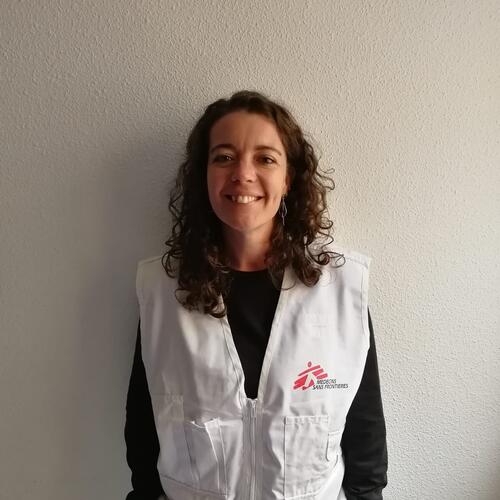
What condition are people in when they arrive?
When people arrive in Montepuez, some are dehydrated and hungry because they have gone without eating or drinking for a long time. Some have generalised pain or headaches or stomach aches. But in general, they do not arrive in a serious condition, but rather with the discomfort of several days of walking, with sores on their feet. Above all, when they arrive, they are in need of water, food and the chance to wash.
There are around twice as many women as men, because many men died during the attacks and others were recruited by the insurgents.
The children arrive in a poor condition, many with malaria. Families here are usually large, with five to seven children. Many of the children are orphans – their parents have died or disappeared, and they are being cared for by their grandmothers or other relatives.
There are also some women and adolescents who were kidnapped by insurgents and made to spend time in insurgent camps, washing clothes, cooking, etcetera. If they had refused, they would have been killed.
Generally, the displaced people arrive in a worse psychological condition than physical condition due to everything they have experienced.
People need psychosocial support to address what they have suffered. As mental health in Mozambique is not very developed, one of MSF’s priorities is to provide this service.Patricia Postigo, MSF medical coordinator
What happens once they reach Montepuez?
In the final months of 2020, between 1,400 and 1,500 people arrived in Montepuez every week, crammed into vans. So far this year, the flow has slowed somewhat due to a decrease in violence. The newcomers stay in a transit area in Montepuez. Some continue their journey to other districts. Other people are taken in by relatives and acquaintances who live in the city. In some houses, where seven people used to live, now there are 30 or 40.
Other people stay in two camps located on the outskirts of the city. In November, there were about 3,000 people in each, but now there are about 10,000 in each. They are not ordinary camps, but more like villages.
Displaced people are given a small plot on which to build a house of mud, a latrine, and also land to cultivate. The process of obtaining this land is not fast; some wait for weeks in the transit area, living out in the open. When they get the land and while they build their houses, they also spend time without a roof.
Their life is about survival. Women get up, go to fetch water, grow cassava, beans, corn or peanuts. Many people spend the day sitting at the door of their house, without going out, because they feel stigmatised. As they come from the same areas as the insurgents, sometimes they suffer rejection by sections of the host community.
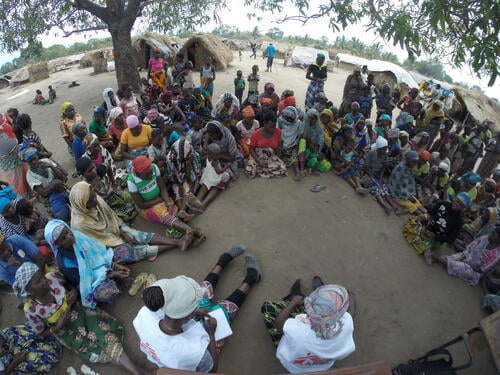
What are people’s health needs in Montepuez?
Shortly after MSF started working in Montepuez in November 2020, there was a cholera outbreak. We built a treatment centre and supported the Ministry of Health with identifying and managing cases. Now admissions are down, but the rainy season continues. The overcrowded conditions in which some displaced people live, and the appalling water and sanitation conditions, are a breeding ground for diseases such as cholera to spread.
Cases of COVID-19 and malaria are also increasing – many people don't even have mosquito nets. In addition, Mozambique has a high prevalence of HIV, which affects around 13 per cent of the population. Many displaced people have had their treatment interrupted, making them even more vulnerable.
Maternal and child health is another source of concern, because many women are giving birth wherever they can, rather than in health centres. The health facilities in the destination areas are generally functional, but with the arrival of so many displaced people, many are overwhelmed and do not have enough staff or medicines.
Through our teams of health promoters, we try to understand what both the displaced people and the host communities need: if they need simple treatments, such as those for mild malaria, they can be carried out on the spot by our community health workers. If the cases are more complicated, we refer patients to a health centre and support them with the transport when necessary. We come across many people who suffer from chronic diseases, especially older people who are bedridden at home.
Beyond health, people need everything. Working with other organisations, we have dug wells and distributed kits containing essentials such as kitchen utensils, planting tools, blankets and water chlorination tablets.
And something that is fundamental: people need psychosocial support to address what they have suffered. As the mental health programme in Mozambique is not very developed, one of MSF’s priorities is to provide this service.



